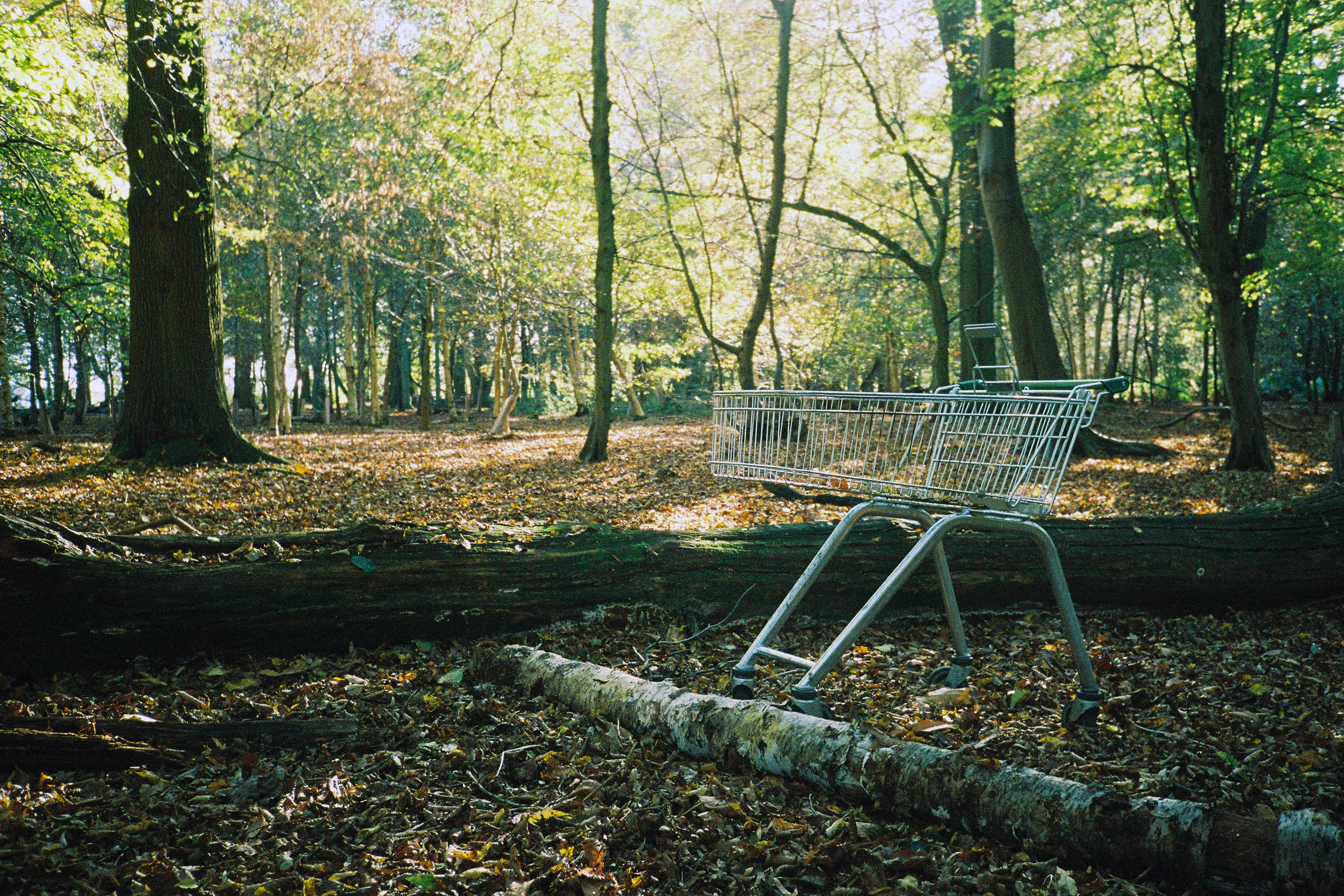Dead sheep and poo bags, or a £150k water bill
Almost a million people in England depend on ad-hoc, unregulated private water supplies. We look at one village that drinks from a contaminated beck - but has been told connecting to the water grid will cost £150,000.
Most people in the UK are lucky enough to never have to think about the safety of their tap water. But nine households living in the village of Aysdalegate, near Whitby, don’t have the same luxury.
“Even in summer, after heavy rain, the water supply will be brown,” says Karl. “If I run a bath, the water is brown – you can get out of a bath dirtier than when you got in.” Autumn, he says, is worse.
And it’s not just mud these residents – whose homes are supplied with water from a beck half a mile away – have to worry about.
“I've witnessed a dead sheep and other animals in it and dog poo bags,” says Karl. “Only yesterday I noticed a dead rat floating in our water supply.”
While most cities and towns in the UK get their water from large, regulated companies, tens of thousands of private water supplies operate in the UK, sourcing from boreholes and natural springs.
When Paul Hunter, professor in medicine at the University of East Anglia, last collated research on the quality of such supplies a decade ago, up to half were contaminated. And while the picture won’t be much better now, he says, most of the people drinking this water don’t seem to share his concerns. In fact, most people he’s interviewed wouldn’t change their water supply if you paid them - because they like the taste, or because they don’t perceive it as dangerous.
It’s true that most people don’t actually get badly sick from polluted waters they’ve become accustomed to drinking, Hunter says - but children, vulnerable adults and those who aren’t used to drinking the water are a different story.
“Diarrhoea in adults is unlikely to kill you, but in young children it’s much more severe and carries the risk of death,” he says.
There are no real risks associated with cooking with this water when it’s heated up to a boil, or using it for bathing and basic personal hygiene, says Hunter, although he draws the line at using it to brush your teeth.
The residents are under strict instructions by the local Redcar and Cleveland Council to not drink the water without boiling it first.
“If shit’s getting into the water, other things that can make people sick are getting into the water too,” Hunter says.
The water also often gets blocked at the source by leaves and other debris. Tracy, who moved to Aysdalegate in 1996, was once left without water for four weeks.
“It seems unfair, in this day and age, that people don’t have drinking water.”
“We get up every morning and turn on the tap, and wonder if it’s working,” she says.
But when it does come out of the taps, she’s not exactly filled with relief.
“When it’s been raining, if I wash my clothes, they come out the same colour as muddy water,” she says. “We don’t have any white shirts in this house.”
“You’d have to see it to believe it – it’s disgusting. I won’t have my grandchildren here to bathe, I’m scared they’ll swallow the water,” she says.
Tracy – who relies on bottled water to drink – has even had to redo her bathroom three times because the muddy water gets into the limescale.
“When you’ve bought a property, you want to live in it without it making you ill. But we can’t fix it,” she says.
A £150,000 water bill
The beck that supplies the residents with their water is on the land of a local livestock farmer. The residents make regular trips to clean and unblock the beck and pick out dead animals and animal droppings, but generally feel there’s nothing else they can do, Tracy says.
Back in 2013, the council advised that the residents could clean the settlement tanks out more often, and install water treatment and filtration systems, and the water comes into their homes. But this relies on the supply being clear, the council acknowledges, and this is difficult since the beck is located in an agricultural area prone to run-off from fields where animals roam.
One option is to sink a borehole and connect this to the mains supply, but investigators can’t find anywhere suitable to do this, the council says.
The only remaining option is to connect to the mains supply via Northumbrian Water, which would cost in excess of £150,000. And the residents would have to pay for this themselves.
“This is a ridiculous price,” says Tracy. “No one earns a lot of money here - we just get by.”
Most water systems in Europe are in the public sector, including in Scotland and Northern Ireland. But England has a fully privatised water system. This is why the residents have been told they’d need to pay to be connected to the mains supply.
While the local authority is responsible for testing the safety of the residents’ water under the Water Industry Act 1991, this is where its responsibility ends.
If water companies connected people to the mains supply for free, the cost would have to be absorbed by existing customers, argued the water minister Rebecca Pow recently when the issue was brought up in Parliament by the residents’ local MP.
The residents have turned to the local Lockwood Parish Council, who has been helping raise awareness of the issue on behalf of the residents.
“It appears that, wherever they go, the residents aren’t allowed to act as a group,” says Jean Bell, clerk to the Parish Council.
“People want to speak to them as homeowners, not a residents group, which is why we’ve said we’ll help be a voice for them,” she says.
The hope, she adds, is to find a way to raise money for connecting to the mains supply.
“It seems unfair, in this day and age, that people don’t have drinking water,” she says.
Hunter agrees, and says that if a community of reasonable size - the definition of which, he acknowledges, is subjective – wants to connect to the mains, they should be financially assisted.
David owns the farmland on which the beck resides - although, his own water supply comes from a different source on the farm.
“Ours is a spring supply out of the ground that then goes through a filtration system,” he says.
David doesn’t get involved with the residents’ plight - but he sees the positives.
“There could be anything in the beck - further up, sheep drink out of it, so they’ll go to the toilet near it and all sorts. But the residents will all have strong immune systems, so they probably don’t get ill from it,” he says.
He also sees the positive side to the residents coughing up the money themselves to connect to the mains supply.
“If they each put in, say £15,000, that’s £15,000 to the value of their properties,” he says.
The council says it’s working with the Drinking Water inspectorate and the Department for Environment, Food and Rural Affairs (Defra) to find a cost-effective solution for residents that will ‘improve their supply to an acceptable level’.
Defra is also reviewing the impact of the current private supplies’ regulatory framework on public health, but when this is published in February 2024, it will be up to policymakers to make any decisions off the back of its findings.
Middlesbrough MP Simon Clarke spoke strongly about the residents’ situation in parliament recently, and said the burden of cost should not be on the residents, who are all “very deprived”.
But as of yet, no one seems willing to foot the bill. Some will see this damning and inevitable consequence of privatising the water supply in England - but for these residents, all they know is that it’s going to be a long winter.
The Lead is now on Substack.
Become a Member, and get our most groundbreaking content first. Become a Founder, and join the newsroom’s internal conversation - meet the writers, the editors and more.





